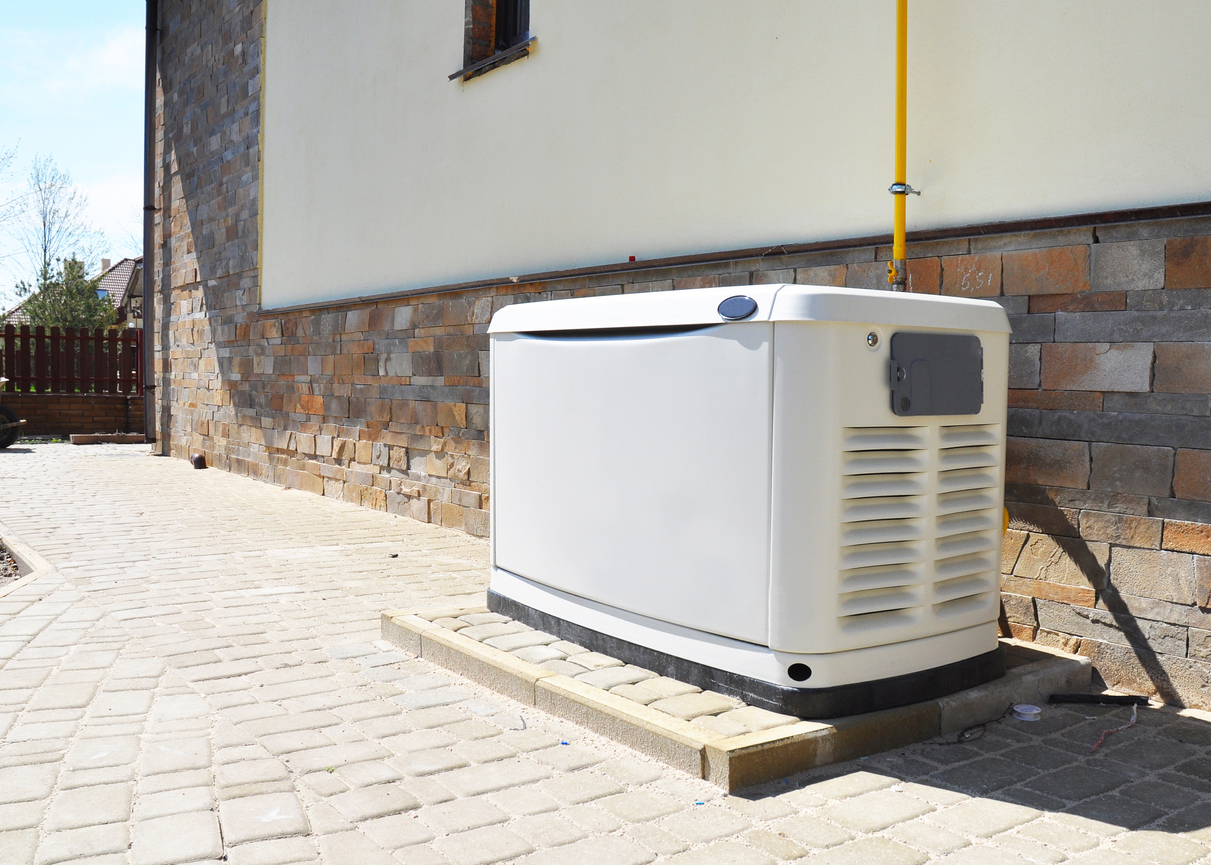Home Generator Installation in Ghana – All You Need to Know About The Home Generator Installation Process
Home Generator Installation in Ghana – All You Need to Know About The Home Generator Installation Process
Home generator installation is a process of introducing and integrating a home generator in your home. Home generators are small-scale electrical generators that can provide backup power in case of an outage. They are commonly found on commercial properties, such as hotels, offices, and hospitals. Depending on the type and size of the generator, these devices may be able to supply all or just a portion of your home’s electrical needs if the utility power goes out. Home generator installation typically involves three main steps – planning and zoning approval, mechanical installation, and electrical installation. In this article, we will explore each step in detail with information on who you need to contact for approvals, what licenses you need to get permits, what type of professionals you need to hire for different phases of the home generator installation process, what codes you should consider, and much more.
What is a Home Generator?
A home generator is an electrical device that can produce electricity when utility power is not available. Generators can provide electricity to an entire house or just a few critical circuits. The most common types of generators are: – Gas-powered generators – These are the most common type of generator. They can be powered by natural gas, propane, gasoline, or diesel. Gas generators are either portable or stationary. Portable generators can be wheeled to the location where they are needed. Stationary generators are permanently installed in one place. – Diesel-powered generators – These generators usually supply power to commercial and industrial buildings. They are quiet but can be very expensive to operate because of the high cost of diesel fuel. – Solar-powered generators – These generators can be installed as an additional source of backup power or as the only source of backup power. Solar generators are generally used for critical loads, such as a well pump or furnace.
Why Install a Home Generator?
A home generator can provide an electrical supply when the utility power is unavailable. There are several reasons why you may need a generator, such as power outages, equipment malfunction, or bad weather like tornados or hurricanes. Even though utility power is not interrupted in your area, you may want to install a generator because it can save you money over time. Utility companies charge higher rates during peak demand periods, especially during extreme weather conditions, such as a hurricane or blizzard.
Different Types of Home Generators
Gas-powered generators – These are the most common type of generator. They can be powered by natural gas, propane, gasoline, or diesel. Gas generators are either portable or stationary. Portable generators can be wheeled to the location where they are needed. Stationary generators are permanently installed in one place. Gasoline-powered generators can be either portable or stationary, but they are much less common than natural-gas-powered generators. Diesel-powered generators – These generators usually supply power to commercial and industrial buildings. They are quiet but can be very expensive to operate because of the high cost of diesel fuel. Solar-powered generators – These generators can be installed as an additional source of backup power or as the only source of backup power. Solar generators are generally used for critical loads, such as a well pump or furnace. Solar generators are more expensive to purchase initially but are usually less expensive to operate than a natural gas generator.
Advantages of Home Generator Installation
– Backup power – If the utility power is interrupted during a storm or other emergency, a generator will provide electricity to your home. This keeps you safe and warm and allows you to use critical equipment, such as a refrigerator or medical devices, without interruption. – Saves money – Generators allow you to reduce your electricity use during peak demand periods, when utility companies charge higher rates for electricity. You can use electricity from the generator instead, which will save you money. – More comfortable – A generator can help your home to stay warm in cold weather and cool in hot weather. It can provide enough electricity to run your furnace and central air conditioner at the same time. – Saves energy – Generators produce electricity more efficiently than power plants. They use less fuel, produce fewer emissions and generate less noise than fossil fuel-powered plants. – No more brownouts – If you have experienced brief periods of reduced voltage, or brownouts, because of high demand in your area, a generator can help you avoid this problem. – Easier to sell – If you ever want to sell your home, a generator will make the electrical system more attractive to potential buyers.
Disadvantages of Installing a Generator
– Requires maintenance – Generators require routine maintenance and occasional repairs. You may also need to change the oil and replace the fuel periodically. – Can reduce property value – Although many buyers would like to have a generator, some may not. Some may even prefer not to buy a home with a generator. – Excessive noise – Some generators are so loud that you can hear them from a distance. This can be an annoyance to your neighbors and may violate local noise ordinances. – Reduced resale value – A home generator can make it more difficult to sell your home. Some buyers may not like the noise, may worry about maintenance, or may decide that a generator does not fit into their plans for the property.
Conclusion
Home generators can provide backup power when the utility power is unavailable. They are commonly found on commercial properties, such as hotels, offices, and hospitals. The most common types of generators are: gas-powered generators, diesel-powered generators, and solar-powered generators. Gas generators are either portable or stationary. Portable generators can be wheeled to the location where they are needed. Stationary generators are permanently installed in one place. Gasoline-powered generators can be either portable or stationary, but they are much less common than natural-gas-powered generators. Diesel-powered generators usually supply power to commercial and industrial buildings. They are quiet but can be very expensive to operate because of the high cost of diesel fuel. Solar-powered generators can be installed as an additional source of backup power or as the only source of backup power. Solar generators are generally used for critical loads, such as a well pump or furnace. Solar generators are more expensive to purchase initially but are usually less expensive to operate than a natural gas generator.







LEAVE A COMMENT
You must be logged in to post a comment.